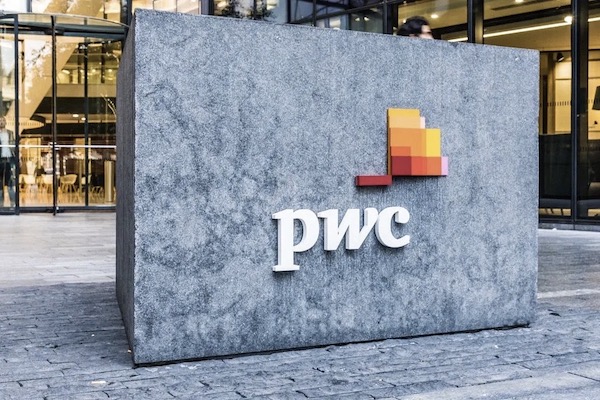Published on the 03/05/2023 | Written by Heather Wright

New money horse in face of tough times…
PwC is making a $1 billion bet on generative AI, embedding the technology in its own business and ramping up its consulting services around generative AI.
The professional services firm says generative AI poses ‘enormous opportunities’ for both PwC and its clients, but the key is in the ‘how’ – how can businesses reimagine their business models to create new paths to growth, how can we ensure underlying data is protected and secure, how can we drive trust, and how to support people in developing the new skills required.
PwC US’ three-year, US$1 billion investment includes a ‘first-of-its-kind’ partnership with Microsoft creating scalable offerings harnessing OpenAI’s GPT-4/ChatGPT in conjunction with Microsoft’s Azure OpenAI service.
“An LLM can be trained and then do 100 tasks with very minor additional training.”
PwC says it has already started implementing capabilities within Azure OpenAI service for clients across multiple industries.
That partnership will undoubtedly see PwC benefit from Microsoft’s multi-billion-dollar investments in OpenAI, an early leader in the rapidly growing market, with PwC banking on the partnership, and technology, to bring a new era of innovation and enable clients to ‘reinvent their businesses and deliver better outcomes’ through richer insights, greater productivity and new products and services.
The technology will be embedded in PcW’s internal platforms to streamline the company’s tax, audit and consulting services.
It follows hard on the heels of last month’s announcement from PwC’s global tax and legal services practice that is had teamed up with AI startup Harvey – built on OpenAI and ChatGPT technology – to provide generative AI technology to teams across 100 countries including Australia. Harvey uses natural language processing, machine learning and data analytics to automate aspects of legal work.
Llike with the new mega investment plan, PwC is using Harvey to generate insights, recommendations and predictions for the legal practice, as well as taking the offering to market.
“AI is an area PwC has been making bets on for years,” the company says.
It claims the technology is already yielding big results for clients.
“PwC teams are already working on hundreds of AI and generative AI use cases to drive efficiencies, cost and time savings and new insights.”
Use of AI alone, rather than generative AI, resulted in 29 percent efficiency savings for an auto insurer, who PwC worked with recently on claim estimation processes.
Also planned is the upskilling of 65,000 PwC US staff on AI tools ‘in order to work faster and smarter, help grow their careers and advise clients on the benefits of AI as well as other transformative technology’, and also recruiting more AI workers.
The company is also eyeing up potential acquisitions in the space.
Other professional services companies, including big four players KPMG and Ernst & Young, are also dipping their toes into the generative AI waters.
KPMG Australia introduced a proprietary version of ChatGPT, KymChat, for its staff earlier this year. KymChat enables KPMG staff to use the technology without having client data leave KPMG’s own environment.
EY, meanwhile, is leveraging ChatGPT in Azure Open AI to scale an ‘enterprise-ready payroll chatbot’, which it expects to reduce the burden on its employees by more than 50 percent by answering complex payroll questions.
The flurry of interest in generative AI is driving new opportunities for tech companies too, as businesses slow down some projects.
IBM is one company looking to AI as a new revenue opportunity, with CEO Arvind Krishna saying AI and hybrid cloud are ‘the two most influential technologies for business’ – and the lynchpins of IBM’s current strategy.
“Early client engagements experienced a 70 percent faster time to value,” Krishna said during IBM’s Q1 2023 earnings call. “That is why we are seeing a lot more interest from business and using AI to boost productivity and reduce costs.
“Productivity gains will come from enterprises turning their workflows into simpler automated processes with AI.”
He noted, however, that AI for business remains very different from AI for consumers, given the need for more accurate results, trusted data and governance tools.
“AI techniques such as foundation models, large language models and generative AI give businesses the ability to create 100 AI models from a single data set,” Krishna says.
“What we are seeing is that a large language model can be trained and then do 100 tasks with very minor additional training. So yes, the first training is a lot more expensive, maybe four, five times, but then if you can do 100 tasks for almost no additional cost, you can see that the overall is a 4x to 5x benefit in terms of time to value and productivity.”
AI isn’t new for IBM, of course. The company was one of the early players with Deep Blue famously beating world chess champion Garry Kasparov back in 1997.
Now the company is looking to AI and hybrid cloud to counteract declining revenue elsewhere in the business. While IBM reported overall revenue growth for the quarter, its infrastructure revenue was flat and Krishna says the company saw ‘some slowing down in consulting projects’.
“The movement towards hybrid cloud and the ability to take advantage of AI for enterprise productivity is perhaps going to be a tailwind as we enter the second half of the year because I do think clients are going to do a lot of automation and a lot of cost cutting, which will likely benefit elements of our software portfolio.”
Google and Microsoft also used their Q1 earnings calls to push AI.
Satya Nadella says the excitement around AI is creating new opportunities across every function from marketing, sales and finance to software development and security.
The company is adding generative AI capabilities to Microsoft 365 applications via Microsoft 365 Copilot.
Google, whose foray into the technology has been slightly more bumpy, is also rolling out AI in its Workspace.



























